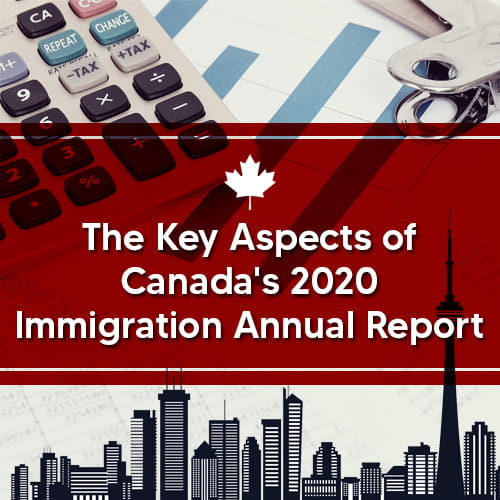
Canada is taking measures of increasing the immigration level in the coming years. Meanwhile, let us look at the immigration report last year to evaluate the immigration reports of 2019.
The Canadian government's annual report got released on Immigration 2020. The Canada report provided an overview of the latest immigration developments and updates in Canada. The Multi year's Immigration Level Plan, 2021- 2023, aims to welcome more than 400000 candidates. The measures through which the government is planning to achieve these targets are -
In 2019, Over One million immigrants and study and work permit holders relocated to Canada. There were over 341,000 newcomers who moved to Canada as permanent residents, and over 400,000 obtained study permit with additional 400,000 obtained work permits. Hence, emphasizing the fact that a lot of newcomers do not come to Canada as PR status holders but as temporary workers. Canada 2021-2023 Immigration Levels Plan is expected to increase admission targets.
More than 60 percent of the permanent residents in Canada relocated under the economic class. It is expected to be the case in the 2021-2023 Immigration Levels Plan as well. In 2019, there were 2,00,000 immigrants who were relocated to Canada with economic class. There were 90,000 immigrants who relocated through the Express Entry. Out of these people who moved to Ontario were (71 percent), People who moved to BC were (17 percent), and for Alberta, it was 8 percent).
There are a large number of people who move to Canada's largest provinces through the Provincial Nominee Program (PNP). The goal of PNP is to help immigrants settle in smaller provinces.
Refugees and Citizenship Canada (IRCC) is taking measures to tackle family reunification backlogs. There are over 90,000 immigrants who had come to Canada under the family class in 2019. In these, 90,000 people had come with the spouses, partners, and children category.
IRCC has a standard processing time of 12 months, but by the end of 2015, Canada had a 77,000 applications backlog in the spouses, partners, and children category. The processing time was set at 21 months, and at the end of 2019, it had fallen to 13 months.
Canada is aiming at strengthening the Francophone community in the country outside of Quebec. Recently there have been measures taken in which more points will be awarded to French-speaking Express Entry candidates. As per the progress report, Canada is expected to achieve a Francophone immigration target of 4.4 percent outside Quebec in 2023.
